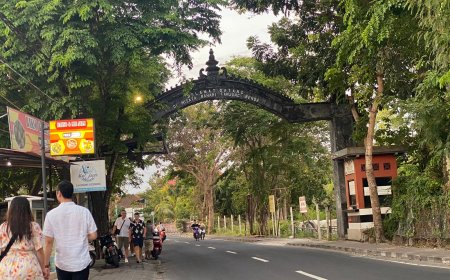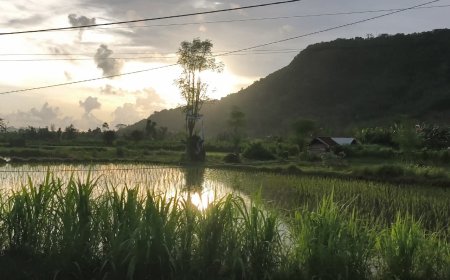Unveiling the Beauty of Tajen Tourist Village: Green Rice Fields in the Embrace of Balinese Culture
In Penebel District, Tabanan Regency, there is a village that is a hidden gem among the green expanse of Bali's hills, Tajen Village. On July 28, 2023, Tajen Village was inaugurated as a tourist village by the Regent of Tabanan, I Komang Gede Sanjaya, through the "Ngantor di Desa" program. This inauguration aims to develop local tourism potential and improve the welfare of the community.
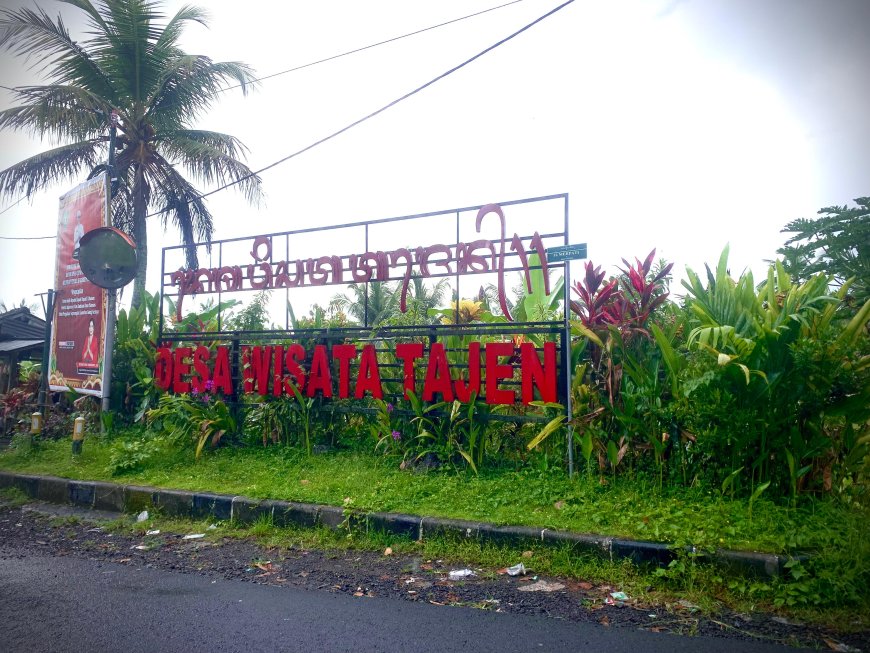
Getting to know Tajen Village
Tajen Village is located in Penebel District, Tabanan Regency, Bali. The village is known for its stunning natural beauty, especially the view of green terraced rice fields and the peaceful rural atmosphere. In addition to its natural beauty, Tajen Village also has rich cultural values and traditions, making it one of the attractive tourist destinations in Bali.
Within Tajen Village itself, it is divided into two Traditional Villages, namely Tajen Traditional Village and Cepik Traditional Village. Tajen Traditional Village still focuses on maintaining the traditions and culture passed down from its ancestors. However, Cepik Traditional Village has its uniqueness too. Cepik Traditional Village is known as a producer of Balinese lofts. Where, this loteng is one of the culinary delights that are sought after by tourists in Bali.
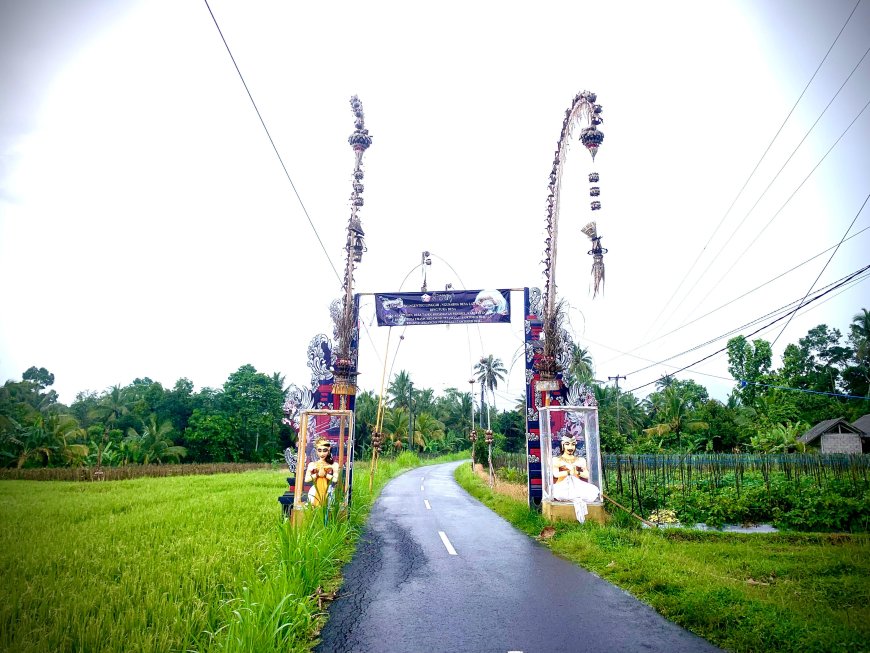
View of Tajen Village (Photo Source: Editor Collection)
Tajen Village offers rice field views that are not only mesmerizing to the eye but also soothing to the soul. The terraced rice fields or known as subak is one of the typical Balinese scenery that is still preserved in this village. With a backdrop of mountains and fresh country air, the tiered rice fields present an authentic natural beauty.
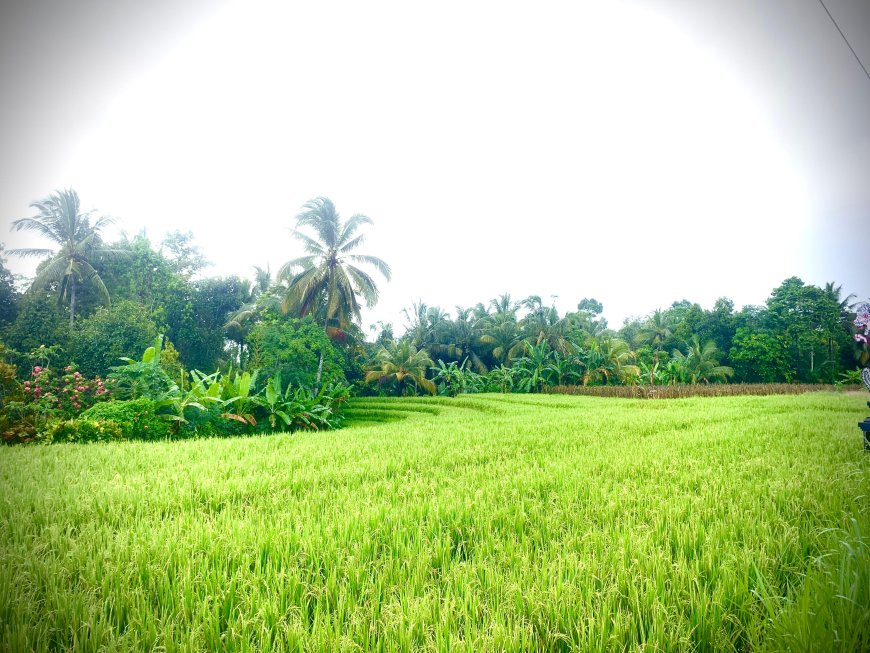
Rice fields of Tajen Village (Photo Source: Editor Collection)
As a tourism village, Tajen Village is now starting to pioneer steps to introduce its natural and cultural beauty to tourists. In this rice field area, visitors can do various fun activities, such as trekking, cycling, or simply walking along the rice fields. For photography lovers, the view of the green rice fields against the backdrop of the mountains and blue sky is a perfect scene to capture.
Tajen Village is also often a favorite location for tourists who want to find peace and unwind from their daily routines. The calm and peaceful atmosphere in the middle of rice fields provides a different experience for visitors who come.
Typical Culinary of Tajen Village: Laklak Bali
Tajen Village has a unique traditional culinary and an attraction for tourists, namely Laklak typical of Tajen Village. Laklak is a traditional Balinese cake made from a mixture of rice flour, coconut milk, and pandan leaves, which gives it a natural green color. This food is cooked using a traditional method, namely a clay fire stove.
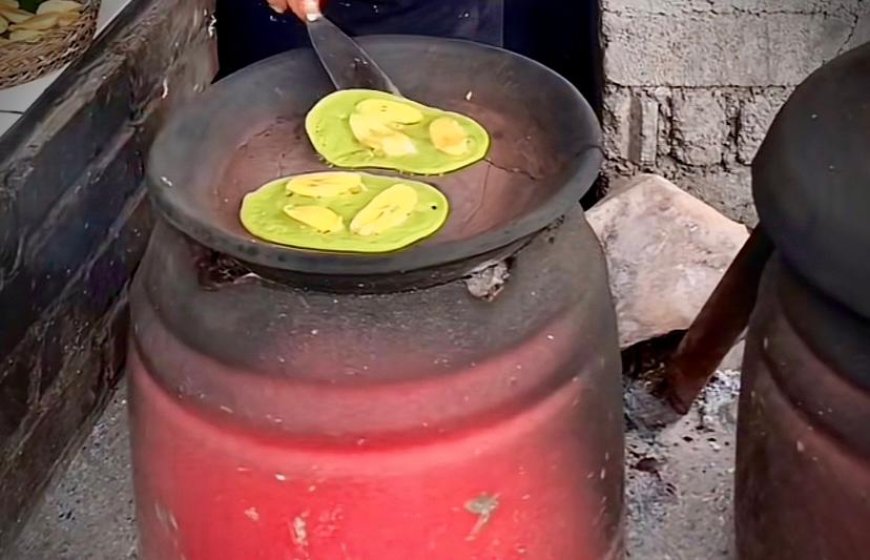
The Process of Making Balinese Laklak (Photo Source: Editor Collection)
The process of making laklak in Tajen Village is done traditionally using clay molds that are heated over a furnace. The laklak is usually served with grated coconut and a splash of liquid brown sugar, creating an authentic blend of sweet and savory flavors.
The process of making laklak starts with mixing rice flour with coconut milk, water, and pandan leaves, creating a smooth and rich batter. One of the distinctive features of laklak is the way it is cooked using traditional clay molds heated over a fire stove, giving it an authentic feel and unique taste.
To make laklak, the clay mold is lightly oiled to prevent the dough from sticking. The dough is poured little by little into the mold, then covered and cooked until done. The cooked laklak has a soft and chewy texture, as well as an appetizing aroma. Laklak is often served with a sprinkle of grated coconut on top and a splash of liquid brown sugar, creating a sweet and savory blend of flavors. The addition of grated coconut provides a touch of contrasting texture, making laklak even more appetizing.
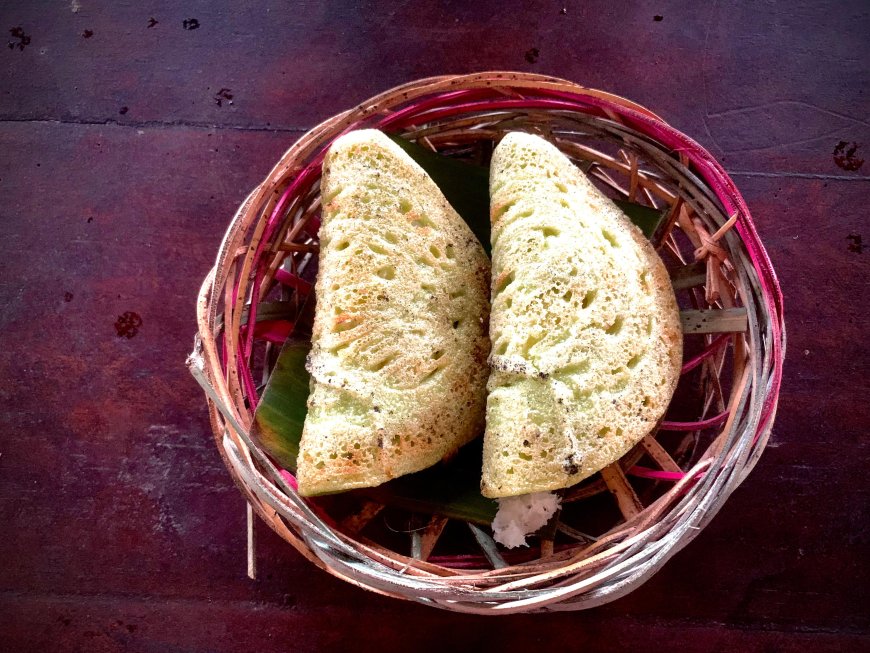
Typical Laklak of Tajen Village (Photo Source: Editor Collection)
In Bali, laklak is not only found in family events or celebrations, but also in traditional markets and small stalls. This cake has its own charm for tourists who want to experience authentic local cuisine. In Tajen Village, in particular, laklak has become one of the most sought-after specialties for visitors. The traditional process of making and serving it adds cultural value and culinary enjoyment, making laklak a symbol of the continuation of Balinese traditions and expertise in processing local food ingredients. As such, laklak is not just food, but also a representation of the rich cultural and culinary heritage that must be preserved.
Cepik Traditional Village: Producer of Balinese Loteng
One part of Tajen Village that attracts attention is Cepik Traditional Village, which is famous as a producer of processed Balinese loteng. Loteng Bali is a traditional snack made from processed cassava that is grated and shaped like a circle. The manufacturing process involves mixing the grated cassava with soy beans, which gives it an additional rich flavor and texture.
The making of Loteng Bali is done with traditional techniques passed down from generation to generation, maintaining the authenticity of the taste and quality of the product. This Balinese loteng is not only popular among the local community, but it has also become one of the attractions for tourists visiting Tajen Village.
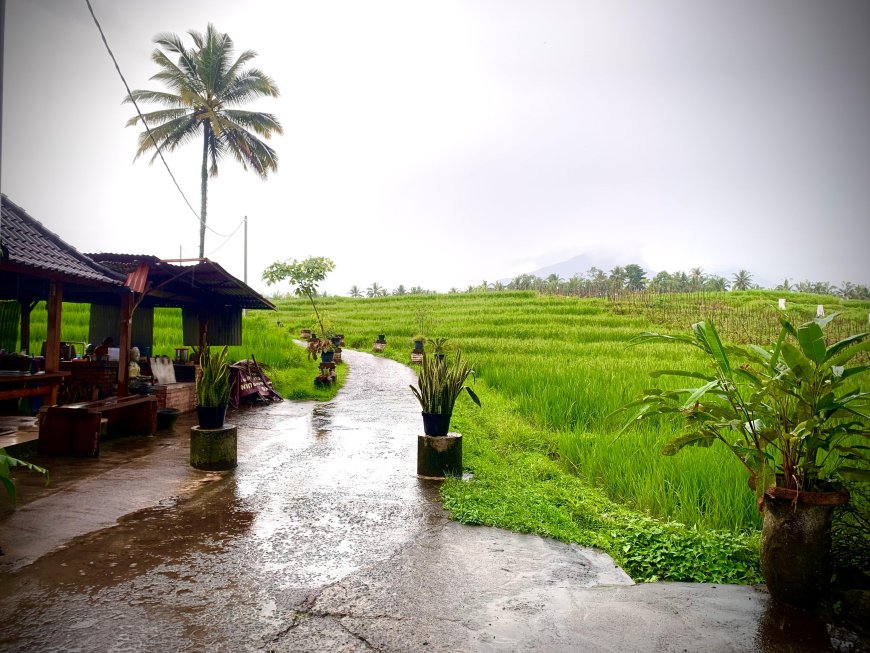
Tajen Village View (Photo Source: Editor Collection)
Tajen Village is the perfect destination for anyone who wants to see a side of Bali that is natural and away from the hustle and bustle of the city. With its status as a tourist village, the beauty of its rice fields, culinary, and specialty products are now more than ready to introduce the charm of rural Bali to more visitors, providing an unforgettable experience for every traveler who comes.


















































